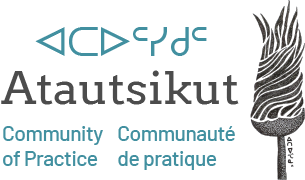Anger is an emotional state that we all experience one day. However, its expression and management can vary depending on the individual, one’s community and culture. In this presentation, we talk about how to understand and intervene with someone who is dealing with anger issues. We explore what anger is, traditional Inuit parenting ways of dealing with anger, and concrete strategies for working with youth and families.

Meeting Resources
References
- Doucleff, Michaeleen and Jane Greenhalg (March 21st, 2019). “How Inuit Parents Teach Kids To Control Their Anger”, NPR.
- Fraser, S. L., Archambault, I., & Parent, V. (2016). Staff intervention and youth behaviors in a child welfare residence. Journal of Child and Family Studies, 25(4), 1188-1199.
- Inuit Women’s Association of Canada (1990). The Inuit way: A guide to Inuit culture. Ottawa: IWAC.
- Nangle, D. W., Erdley, C., Carpenter, E. M., & Newman, J. E. (2002). Social skills training as a treatment for aggressive children and adolescents: A developmental–clinical integration. Aggression and violent behavior, 7(2), 169-199.
- Sukhodolsky, D.; Kassinove, H. & Gorman, B. (2004). “Cognitive-behavioral therapy for anger in children and adolescents: A meta-analysis”. Aggression and Violent Behavior. 9 (3): 247–269.
- American Psychological Association (APA) (2012, January 1). How to recognize and deal with anger. http://www.apa.org/topics/recognize-anger
- Arnaquq-Baril, A. (2016). Angry Inuk [Motion picture]. National Film Board of Canada.
- Briggs, J. L. (1970). Never in Anger: Portrait of an Eskimo Family. Cambridge, MA: Harvard University Press.
- Briggs, J. L. (1998). Inuit morality play: The emotional education of a three-year-old. Yale University Press.
- Briggs, J. L. (2000a). Conflict management in a modern Inuit community. Chapter 5. In “Hunters and Gatherers in the Modern World: Conflict, Resistance, and Self-Determination”, edited by P. P. Schweitzer, M. Biesele and R. K. Hitchcock, p.110-124. NY and Oxford: Berghahn Books.
- Briggs, J. L. (2000b). Emotions have many faces: Inuit lessons. Anthropologica, 42(2), 157.
- Howells, K., & Day, A. (2003). Readiness for anger management: Clinical and theoretical issues. Clinical psychology review, 23(2), 319-337.
- Novaco, R. W. (2000). “Anger” in Kazdin, A. E. (ed.). Encyclopedia of psychology (Vol. 8, p. 4128). Washington, DC: American Psychological Association., pp170-174.
- Phaik, O. Y., & Nikki, L. A. (2014). Effective anger management for children and youth: the manual and the workbook (Vol. 22). World Scientific.
- Pudney, W., and E. Whitehouse (2012). Little Volcanoes : Helping Young Children and Their Parents to Deal with Anger. Jessica Kingsley Publishers.
- Tremonti, Anna Maria (May 4th, 2016). “‘Angry Inuk’ argues anti-seal hunt campaign hurts Canadian Inuit life”. The Current. CBC Radio.
To Go Further
Angry Inuk | Alethea Arnaquq-Baril
Angry Inuk is a documentary film about the injustice suffered by Inuit communities over the banning of the seal hunt by the European Union and the fundraising campaigns of NGOs. It defends the Inuit seal hunt and shows how the needs of Inuit families who depends on the hunt for their livelihoods are ignored by drawing a false distinction between subsistence-driven Inuit hunters and profit-driven commercial hunters.
Video: TIFF Trailers
Available in English

More about Jean Briggs’ work
Jean Briggs is an anthropologist who worked with Inuit communities and has focused a lot on emotions and the education of children. Her books Never in Anger and Inuit Morality Play are about her work with Inuit families in the Baffin area in the 1960s and 70s. Over the years, she observed how parents taught their children how to deal with emotions such as anger.
Image: Memorial University
- Briggs, J. L. (2000). Emotions have many faces: Inuit lessons. Anthropologica, 157-164.
- Briggs, J. L. (1970). Never in anger: Portrait of an Eskimo family (Vol. 12). Harvard University Press.
- Briggs, J. L. (1998). Inuit morality play: The emotional education of a three-year-old. Yale University Press.
- Briggs, J. L. (2000a). Conflict management in a modern Inuit community. Chapter 5. In “Hunters and Gatherers in the Modern World: Conflict, Resistance, and Self-Determination”, edited by P. P. Schweitzer, M. Biesele and R. K. Hitchcock, p.110-124. NY and Oxford: Berghahn Books.
Available in English
Interview with Alethea Arnaquq-Baril (Angry Inuk)
The director of the film Angry Inuk, Alethea Arnaquq-Baril, has spoken several times about the title of her documentary, but also about the way anger is expressed among Inuit. She discusses it in this Q&A from the 11th minute.
Video: Cinema Politica
Available in English




